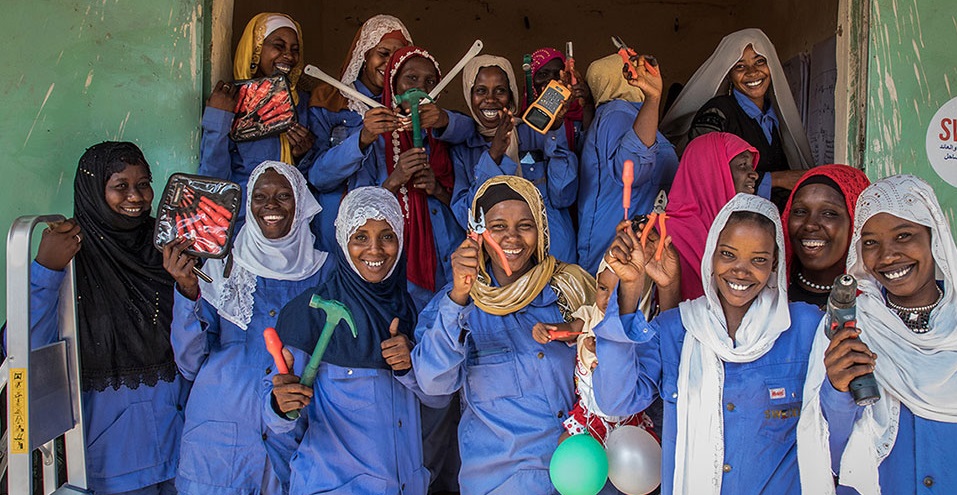A $295 million United Nations and World Bank-backed project is transforming the lives of women and girls across North-Central Africa.
The Sahel Women’s Empowerment and Demographic Dividend (SWEDD) has spent four years working across seven countries—Benin, Burkina Faso, Chad, the Cote d’Ivoire, Mali, Mauritania and Niger—to increase access to education and healthcare, so that the Sahel can “harness the economic potential of women.”
It’s reached more than four million people with awareness campaigns on violence against women and issues related to reproductive and maternal health.
It runs a radio show, sharing messages on why girls’ empowerment is important. It’s trained 6,600 midwives across the countries and just under 100,000 women for vocational roles, including solar panel engineers.
SWEDD also runs over 1,500 schools to teach husbands and future husbands about family planning and household life. One participant’s wife told the World Bank that the course had improved her relationship “significantly,” as her husband now helps around the house and collects wood and water. “He even wanted to be present for the birth of their last child,” she added.
“By helping girls develop income-generating activities or apply for jobs, we enable them to stand on their own feet,” Sy Savanneh Syrah, one of the managers of the SWEDD project for Côte d’Ivoire Government, told the World Bank. “Women’s empowerment is not only beneficial for girls; it benefits their families, the community as a whole, and our country’s economy.”
Particular challenges
While filled with courage, compassion and ambition, much like every other place in the world, communities in the Sahel have to content with conflicts, epidemics, famine, terrorism and forced migration. Just one in 10 girls finishes their secondary education in Niger, and one in two girls across the Niger gets married before they reach 18.
The UN adds that the Sahel, widely considered the poorest region in Africa, has a particularly high youth dependency ratio—the rate at which non-working young people depend on others to meet their needs.
Nonetheless, the World Bank shares stories of people trained by the scheme, including Innayatou Souradji, a 15-year-old girl who received a scholarship to continue her school studies; Alice Adja, from Côte d’Ivoire, who dreams of being a professional pastry chef; and Fatoumata Diallo, who has trained as a midwife in Mali.
“By promoting the empowerment of girls and women, SWEDD is helping tackle the major human capital challenge facing Africa,” Soukeyna Kane, World Bank Country Director for Mali, Niger, Chad, and Burkina Faso, said in the World Bank article. “The project’s impact will ripple across the entire society over the long term, reducing infant mortality and chronic malnutrition rates, boosting productivity and household incomes, and accelerating the demographic transition.
“For these reasons, we see the project as an indispensable poverty reduction tool and a priority for the World Bank.”
